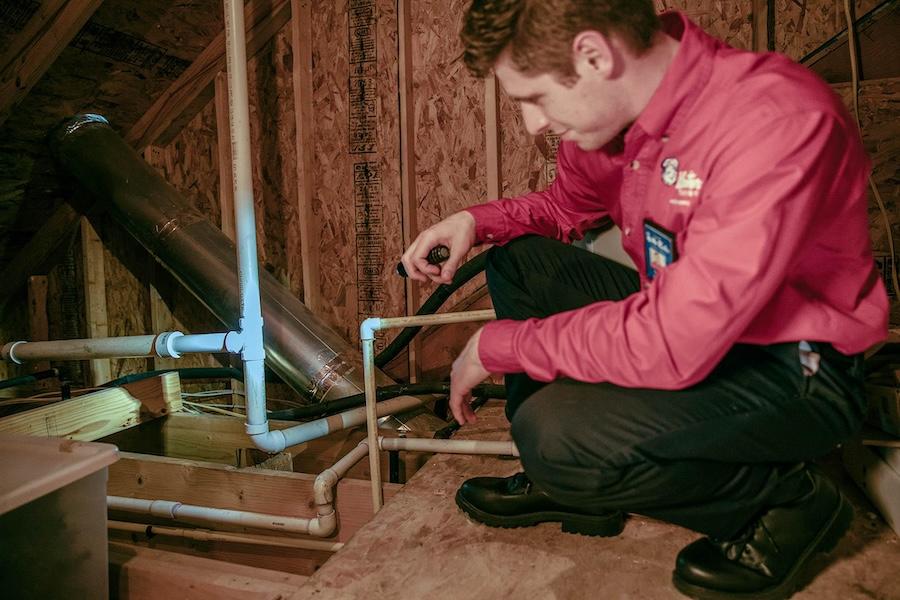Call Us This Saturday to Get $50 OFF
- Home
-
Plumbing Services
- Drain Cleaning
- Sewer Repair
- Bathroom Plumbing
- Commercial Plumbing
- Faucet & Kitchen Sinks
- Garbage Disposals
- Gas Line Repair
- Hydro-Jetting
- Kitchen Plumbing
- Leak Detection
- Pipe Repair
- Plumbing Repair
- Sump Pumps
- Toilet Replacement
- Underground Utility Plumbing
- Water Heaters
- Water Line Replacement
- Water Filtration Installation
- Water Softeners
- Drain Cleaning
- Service Areas
- Akron, OH
- Alliance, OH
- Ashland, OH
- Ashtabula, OH
- Aurora, OH
- Avon Lake, OH
- Avon, OH
- Bainbridge, OH
- Barberton, OH
- Bay Village, OH
- Beachwood, OH
- Bedford Heights, OH
- Bedford, OH
- Berea, OH
- Brecksville, OH
- Broadview Heights, OH
- Brooklyn, OH
- Brookpark, OH
- Brunswick, OH
- Canton, OH
- Chagrin Falls, OH
- Chardon, OH
- Chesterland, OH
- Cleveland Heights, OH
- Cleveland, OH
- Conneaut, OH
- Cuyahoga Falls, OH
- East Cleveland, OH
- Eastlake, OH
- Elyria, OH
- Euclid, OH
- Fairview Park, OH
- Garfield Heights, OH
- Geneva, OH
- Grafton, OH
- Highland Heights, OH
- Huber Heights, OH
- Hudson, OH
- Independence, OH
- Kent, OH
- Kirtland, OH
- Lakewood, OH
- Lorain, OH
- Lyndhurst, OH
- Macedonia, OH
- Maple Heights, OH
- Massillon, OH
- Medina, OH
- Mentor on The Lake, OH
- Mentor, OH
- Middleburg Heights, OH
- North Canton, OH
- North Olmsted, OH
- North Ridgeville, OH
- North Royalton, OH
- Oberlin, OH
- Olmsted Falls, OH
- Parma Heights, OH
- Parma, OH
- Pepper Pike, OH
- Richmond Heights, OH
- Rocky River, OH
- Seven Hills, OH
- Shaker Heights, OH
- Sheffield Lake, OH
- Solon, OH
- South Euclid, OH
- Stow, OH
- Streetsboro, OH
- Strongsville, OH
- Tallmadge, OH
- Twinsburg, OH
- University Heights, OH
- Valley View, OH
- Wadsworth, OH
- Warrensville Heights, OH
- Westlake, OH
- Wickliffe, OH
- Willoughby Hills, OH
- Willoughby, OH
- Willowick, OH
- Locations
- Reviews
- Coupons
- Blog
- FAQ
- Videos
- About Us
- Contact Us
Call Us This Saturday to Get $50 OFF
Do You Need a Plumber in Cleveland?
Call Us Now to Get $50 OFF.4.8/5Ratings based on 4584 reviews Local Plumbers, Local Reviews
- Home
- Plumbing Services
- Drain Cleaning
- Sewer Repair
- Bathroom Plumbing
- Commercial Plumbing
- Faucet & Kitchen Sinks
- Garbage Disposals
- Gas Line Repair
- Hydro-Jetting
- Kitchen Plumbing
- Leak Detection
- Pipe Repair
- Plumbing Repair
- Sump Pumps
- Toilet Replacement
- Underground Utility Plumbing
- Water Heaters
- Water Line Replacement
- Water Filtration Installation
- Water Softeners
- Drain Cleaning
- Service Areas
- Akron, OH
- Alliance, OH
- Ashland, OH
- Ashtabula, OH
- Aurora, OH
- Avon Lake, OH
- Avon, OH
- Bainbridge, OH
- Barberton, OH
- Bay Village, OH
- Beachwood, OH
- Bedford Heights, OH
- Bedford, OH
- Berea, OH
- Brecksville, OH
- Broadview Heights, OH
- Brooklyn, OH
- Brookpark, OH
- Brunswick, OH
- Canton, OH
- Chagrin Falls, OH
- Chardon, OH
- Chesterland, OH
- Cleveland Heights, OH
- Cleveland, OH
- Conneaut, OH
- Cuyahoga Falls, OH
- East Cleveland, OH
- Eastlake, OH
- Elyria, OH
- Euclid, OH
- Fairview Park, OH
- Garfield Heights, OH
- Geneva, OH
- Grafton, OH
- Highland Heights, OH
- Huber Heights, OH
- Hudson, OH
- Independence, OH
- Kent, OH
- Kirtland, OH
- Lakewood, OH
- Lorain, OH
- Lyndhurst, OH
- Macedonia, OH
- Maple Heights, OH
- Massillon, OH
- Medina, OH
- Mentor on The Lake, OH
- Mentor, OH
- Middleburg Heights, OH
- North Canton, OH
- North Olmsted, OH
- North Ridgeville, OH
- North Royalton, OH
- Oberlin, OH
- Olmsted Falls, OH
- Parma Heights, OH
- Parma, OH
- Pepper Pike, OH
- Richmond Heights, OH
- Rocky River, OH
- Seven Hills, OH
- Shaker Heights, OH
- Sheffield Lake, OH
- Solon, OH
- South Euclid, OH
- Stow, OH
- Streetsboro, OH
- Strongsville, OH
- Tallmadge, OH
- Twinsburg, OH
- University Heights, OH
- Valley View, OH
- Wadsworth, OH
- Warrensville Heights, OH
- Westlake, OH
- Wickliffe, OH
- Willoughby Hills, OH
- Willoughby, OH
- Willowick, OH
- Reviews
- Locations
- Coupons
- Blog
- FAQ
- Videos
- About Us
- Contact Us







